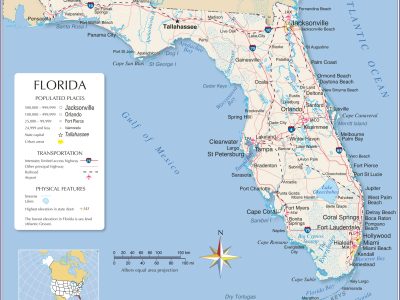There have been seven mass shootings in Florida since 2016. The most notable ones were probably the 2018 Douglas High School shooting in Parkland, the 2017 Fort Lauderdale airport shooting, and the 2016 Pulse Nightclub shooting in Orlando. The most recent one occurred just a few months ago. In January 2019, 21-year-old Zephen Xaver, a former prison guard trainee described as a hate-filled man who was obsessed with guns, entered a Sebring bank and fatally shot five people. Investigators are still looking for a motive.
With all this recent history of violence, many people thought that Florida would toughen its gun ownership laws. Some opined that the Parkland shooting would be the catalyst for change.
Yet Florida still has some of the most gun owner-friendly restrictions in the country. The state’s electorate is still quite conservative, so the feared (or welcomed) gun ownership crackdown has not happened yet, and probably will not happen anytime soon.
A gun ownership trust is an excellent way to maximize your gun ownership rights in Florida or any other state. These trusts have many non-ownership benefits as well. For example, gun owners can keep their collections private and make sure that other people in the trust share their values.
But no gun trust can change state or federal laws. Do, it’s important to look at the gun ownership laws in the Sunshine State and see how they affect you and the other people in your gun trust.
A Brief Overview
Florida is a “shall issue” state. If applicants meet the minimum qualifications for gun ownership or a CCW (carrying a concealed weapon) permit, officials must issue the license, in most cases. Most red states, including Georgia, have similar laws.
However, Florida also has an unusual “red flag” law. Only a handful other states authorize peace officers to seize guns and keep them for up to a year. Over 400 Floridians a year lose their guns because they are a danger to themselves or others.
Florida gun control laws also contain a local preemption. Cities and counties cannot make their own gun laws, whether they are more or less restrictive than state laws. That’s a good thing in a populous state like Florida, because it makes the laws consistent. Lawmakers passed that preemption provision way back in 1987, but it was largely ignored until a 2011 amendment added penalty provisions to the law.
The CCW Law in Florida
Florida’s concealed weapons permit is valid in thirty states. The list of prohibited places is rather short, and rather controversial, as well:
- Schools: Students and teachers can never carry guns at school. But formal and informal security personnel may do so. That list includes people like school counsellors, librarians, and cafeteria workers, provided they complete at least 12 hours of training.
- Courthouse: Many “courthouses” do not contain judges and do not look like courthouses. Instead, they are office building annexes or maybe even part of a private office building. The CCW prohibition applies in these places as well, although the application is a bit murky.
- Airports: In large international airports, the secure and unsecure areas are always clearly marked. But in smaller municipal airports, that may not be the case.
The CCW law also contains an unusual “flasher” provision. Permit holders may briefly display their guns to other people, if they do not do so in a threatening or aggressive manner. I am not sure how you can display a Glock in a non-threatening manner, but apparently it’s possible.
A few words on Florida’s self-defense rules. If you get into trouble with your gun, these laws can get you out. Florida is both a stand-your-ground state and a castle doctrine state. Many jurisdictions are only one or the other. So, there is never a duty to retreat in Florida, whether the confrontation takes place in your home or in public. These laws also grant civil immunity and make it very difficult for peace officers to make an arrest.
Open Carry Rules
If you plan to carry guns in Florida, you definitely need a gun trust. The laws are very complex, and people can get in an awful lot of trouble even if they do not know they are doing anything wrong. For example, if your daughter borrows your car and you left a gun inside, she could be charged with a felony.
Guns must be “securely encased” inside vehicles. Despite what many officers believe, this phrase is not synonymous with “locked away.” A pistol in an unlocked glove compartment is securely encased, as is a gun inside a zippered carrying case. But to make an arrest and press charges, officers just need probable cause.
In 2008, Florida became a “take your gun to work” state. This quaint phrase means that people may exercise their Second Amendment rights and take their guns with them to work, even if their employer does not allow firearms on premises. There are some exceptions, including prisons, schools, and nuclear power plants.
Sales of Firearms
The aforementioned 2018 law raised the ownership age from 18 to 21. The law also imposed a three-day waiting period on handgun purchases. Such waiting periods serve as a “cooling-off” period and allow time for a background check. This requirement has several exceptions. CCW permit holders, licensed hunters, and a few other people do not have to wait.
Unlicensed firearms sales are not subject to the preemption law. Counties can require waiting periods of up to five days at gun show sales. Only a few of the larger counties have passed such ordinances, which do not apply to CCW permit holders.
Preserve Your Gun Ownership Rights
Gun ownership trusts are valid in all fifty states. For a confidential gun trust consultation with an experienced Second Amendment attorney in Marietta, contact NFA Lawyers, LLC. Convenient payment plans are available.



 Supreme Court Deals Setback to Bump Stock Challenge
Supreme Court Deals Setback to Bump Stock Challenge